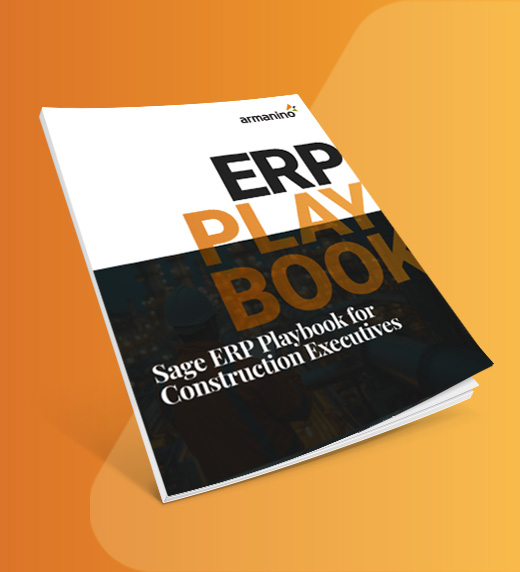What Is a Construction Audit?
A construction audit is a detailed review of a project's contracts, costs, compliance and performance to help project owners, developers and stakeholders identify and address issues like cost overruns, contract noncompliance and project cost risk management. Construction audits are part of construction project cost advisory services, which help you manage costs from planning through project completion by making sure contracts protect the owner and are followed, unnecessary project costs and expenses are avoided and potential savings are recovered.
In this comprehensive guide, we'll cover:
What Projects Can Benefit From a Construction Audit?
Construction audits are ideal for organizations embarking on any large capital project. Some typical examples are:
| Industry |
Examples |
| Healthcare/hospitals |
Ambulatory care facilities, inpatient towers, emergency departments, parking garages |
| Colleges and universities |
Alumni centers, sports facilities, libraries, student housing |
| Nonprofit |
Museums, affordable housing, community centers, recreational facilities |
| Industrial |
Manufacturing facilities, warehouses, energy plants |
| Technology |
Data centers |
| Commercial real estate |
Office buildings, shopping centers |
| Large-scale infrastructure |
Highways, bridges, airports |
| Government and public sector |
Public schools, municipal buildings |
Hotels and multi-family housing
|
Apartment/condominium complexes, residential housing |
Renovations and retrofitting
|
Historic buildings, existing facilities |
| Entertainment |
Arenas, stadiums, convention centers, zoos, gaming |
Reasons to Undertake a Construction Audit
Ultimately, an audit protects a project’s budget integrity and helps you deliver a successful outcome.
- Verify and control costs: Ensure that costs charged to a project are not in error or duplicated and match contract terms, preventing overcharges.
- Stay on budget: Identify discrepancies between actual spending and budgeted amounts.
- Prevent fraud: Detect signs of overcharging or dishonest billing.
- Ensure contract compliance: Verify that all contract requirements are met, including prime contract agreements and subcontract agreements.
- Improve efficiency: Streamline processes in payment applications and billings to make sure resources are used effectively.
- Avoid disputes: Ensure all parties meet their contractual obligations, reducing potential conflicts or legal issues.
When to Do a Construction Audit
The earlier you engage a construction auditor, the better. Ideally, project owners should seek out a construction audit before a shovel hits the dirt.
There are potential risk areas that warrant an audit in all phases of a project: preconstruction, construction and at project completion/closeout. Engaging an auditor throughout the entire project lifecycle can help you maximize your cost avoidance and cost recovery.
Types of Construction Audits
There are numerous types of construction audits, each addressing different aspects of a project. These audits can be conducted individually or combined, depending on your needs. Some audits may span multiple phases of the project lifecycle.
Pre-construction
Making sure owners are protected and understand their risks prior to construction is key. In this phase, the construction auditor may focus on:
- Construction contract assessment
- Project risk assessment
- Comparison of labor billing rates to industry and regional standards
- Estimation of reasonable appropriation for tax burden and labor fringe costs
- Estimation of reasonable appropriation for insurance, small tools, etc.
- Establishment of an appropriate contract payment application structure, allowing for effective periodic reviews
Construction
Ensuring that owners don’t pay too much and realize cost savings and recoveries during the project is essential. During this phase, the auditor may focus on:
- Payment application review
- Change order review
- Assessments of contingencies and allowances
- Validation of labor costs and material purchases and identification of non-compliant charges
- Subcontractor bid and award recommendation assessments
- Analysis of equipment lease billings
- Reconciliation of actual costs to estimated costs and validation of duplicate charges
Closeout
A final project cost reconciliation is critical. In this phase, the construction auditor conducts a detailed review of all project costs to verify that all costs charged to the owner are accurate, reasonable and comply with contract terms.
Other services to consider
In addition to a construction audit, project owners can benefit from other construction project cost advisory services throughout the project life cycle, including:
- Process improvement consulting
- Procurement and labor rate assessment
- Relocation and travel expense assessment
- Project management support
- Project cost control assistance
Construction Audit Challenges
Common challenges associated with construction audits include:
- Mountains of paperwork: From contracts to payment applications, construction projects generate significant paperwork.
- Complex and costly change orders: Managing and auditing frequent change orders can be tedious and time consuming , especially when these changes impact budget and timelines.
- Lack of standardization: Different project owners, contractors and subcontractors may use varying systems and processes, complicating the audit.
- Records and documentation: Records and supporting documentation can be inconsistent, missing or incomplete.
- Fraud detection: Identifying fraud in large, complex projects can be difficult because of the number of moving parts, making it easy for unauthorized charges or errors to go unnoticed.
- Time and resource constraints: Conducting a detailed construction audit requires time and expertise, which can strain a project owner’s internal resources if not properly managed.
Having experienced auditors and a solid process in place will help you navigate these hurdles with minimal stress.
Requirements For a Construction Audit
For a smooth, successful construction audit, you need to prepare specific documentation and understand the key requirements of the audit process. Here’s what to provide the auditor:
- Contract documents: Include all contracts and exhibits, change orders, amendments and any agreements made with contractors, subcontractors and vendors. Auditors will review these to ensure compliance with terms and pricing, and to assess overall cost risks.
- Project schedules and cash flows: Original and updated schedules and cash flows are needed to track progress and delays. This helps auditors assess whether the project is on track or there are significant deviations that need attention.
- Cost records: Provide complete records of all contractor general conditions charges, staff and trade labor, equipment (rentals and purchases), material and subcontractor costs.
- Progress reports: Contractors should be required to provide regular (ideally monthly) reports that detail the status of the project, including schedule updates and milestones achieved, current budget, committed costs, anticipated costs and any other challenges affecting the schedule and budget.
- Subcontractor information: Provide copies of subcontractor bids and subcontract agreements.
- Change orders: All approved and pending change orders, along with their impact on the budget and timeline, need to be fully documented, including all supporting back-up for auditor review.
- Risk management reports: If the project has risk assessments or mitigation strategies, these should be shared. Auditors will assess how well risks are being managed and whether potential threats are controlled.
- Communication logs: Logs of important correspondence, meeting minutes and critical decisions can give auditors insight into the decision-making process and project adjustments.
Additional considerations:
- Records availability: Documentation should be organized and easily accessible to auditors.
- Timeliness: Ensure records are up-to-date and accurately reflect the current state of the project.
- Stakeholder engagement: Key personnel involved in the project, such as project managers, financial personnel and contractors, should be available to provide clarification or additional information.
Process for a Construction Audit
High-level steps in the construction audit process include:




